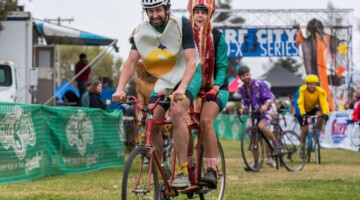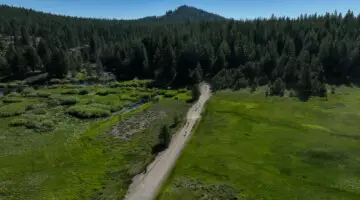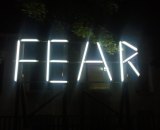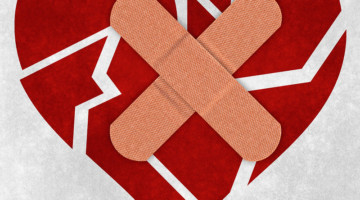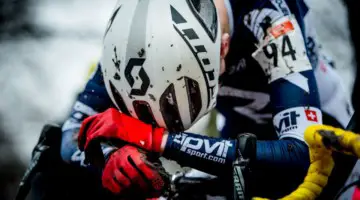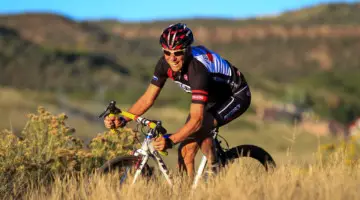For our column this week Kim and I agreed to explore the role that fear occupies in our racing lives. The end result surprised me and I’m sure it surprised Kim as well. We’d love to hear from you. What do you fear? How do you deal with those fears?
Lee’s Take:
Fears… The important thing to remember about fears is that they’re ever-present. The next most important thing to remember is that they can be incredibly useful. You’d think that being afraid might lead to a whole raft of negative results, and they can do that but only if you let them take over. I learned a long time ago that if you understand what they really are and channel them, they can be your friend. Fear after all, is only adrenaline.
No matter how long I race, and it’s been a really long time, there’s always that element of fear at the beginning of every season, every race, sometimes every training session. I think one of the things that separates successful athletes (whatever that means), from those who are less successful isn’t lack of fear, it’s how they deal with their fear. What did the cavemen do with that adrenaline? They used it to outrun all of those carnivores intent on making them into lunch. In our world as crossers, survival means performing well. Once I understood that, it became easier to channel that need to pee on the starting line, or that feeling that I was ready to puke. I just visualize the energy that the adrenaline offers my muscles and try to use it positively.
Looking back on over 30 years of racing ’cross I can’t remember a time when I wasn’t at least a little bit afraid sitting at the start line waiting for the whistle. My mind plays tricks. Intellectually I know that I’m well trained and ready but emotionally there’s always the doubt. First I look around and deep down in my inner soul I really do believe that each and every one of the riders lined up with me is fitter, stronger, and better equipped. I guess that falls more under the heading of self-doubt than it does fear but the two seem to be interconnected. The self-doubt leads to performance anxiety which is just a really fancy way of saying that I’m afraid I won’t perform well.
It doesn’t matter that the only one who I really need to please is myself. After all of the blood, sweat and tears that we both know goes into preparing to race cyclocross, not meeting self imposed expectations is a fearful thought to wrap my head around.
So, in the larger context, I’d say that’s my biggest fear – not meeting my own expectations, that and looking foolish.
What’s that you say? How can you even think about looking foolish when most of the time you’re running through the mud carrying a perfectly rideable bicycle. My answer . . . getting passed is embarrassing and I hate it! So it’s not really about looking foolish per se, but about looking weak. Yeah, that’s it. Even though on average I’m five to six years older than everyone I race with, getting beaten at something I work so hard at is, to be honest, frightening.
And then there’s the fear, anticipation if you will, of physical pain. The start of any cross race just plain hurts. I know I’m going to be in the hurt locker for the next 40 minutes. Who does that knowingly? I made the choice to show up and pay my entry fee, but no one in their right mind actually invites physical discomfort.
Bottom line here; besides the pain that goes with enormous quantities of lactic acid, I don’t like to fall. It hurts. I’ve done it enough times, have the scars to show for it, that it’s not something I look forward to.
Finally, and this is a biggie also, there’s the fear I experience on each ’cross course. This isn’t road racing after all. The terrain is as much of a factor in the equation of a race as equipment, fitness and everything else I’ve talked about. I’m just plain afraid that I’m not technically proficient enough to ride the course as well as the competition. Frozen ruts and slick roots have been my nemesis in the past. I have the broken ribs and teeth to prove it.
But, after thinking about all of the things that truly scare me, that cause me to wake up in the middle of the night before a race, I can also say with a certain degree of certainty, that without the fear factor racing wouldn’t be as fulfilling. Just think about that feeling of accomplishment when you roll across the line knowing that everything that scared you 40 minutes ago has been vanquished.
Kim’s Take:
My fears don’t center on how hard that gravel will feel against the skin of my kneecap or the ferocity of competitors behind me or starting line jitters. I fear my stubbornness. I fear giving up. I fear not accomplishing my goal. During my first season, I surprised myself (and a few people around me) when I ended up in the top ten for most of my races. I hardly trained, and I’d learned most of the skills I needed from YouTube. Many of the races were difficult and the courses offered some heinous challenges, but it was all new, so I got out every weekend because I loved the rush. By November the mountains were covered in snow, and I moved on to skate skiing.
Last fall I decided to take racing more seriously. I wanted to do well in the Colorado Cross Cup standings and set my sights on the top ten. My strategy was one of quantity versus quality. If I showed up every Saturday and raced, I might keep my first row call up and have an advantage off the line. My starts were pretty spectacular, but halfway through the first lap, women would fly past me taking advantage of my weakness. It was okay, though, because wherever I placed, I earned a few points and prepared to try again the next weekend.
Rain or shine, I showed up. My start times was early last season, and after the excitement of the season’s start wore off, I kinda dreaded getting out every Saturday. Racing was becoming tedious. I went to a few I hadn’t liked the year before because of the courses, but I suffered through them anyway, struggling to get amped and across the finish line. After Primalpalooza’s “death spiral,” I cried. I spent the end of October asking myself “What am I doing?” Back at school, I talked one of my students into taking a break from his basketball schedule, so he could regain the love he had for the sport. And then I considered my own advice.
Why was I so determined to fulfill this goal? Why pursue something if it wasn’t making me happy? Why spend so much time on crossresults.com when I could be watching The Bachelor? I couldn’t give up, right?
“Right!” said my stubborn mind. I was racing courses I didn’t enjoy, leaving family early in the morning every weekend, and whining about how much I wanted a break.
I realized I didn’t race in the present anymore. By the time I was on the course, I had already finished in my head days before, and when faced with reality, it was very frustrating. As an athlete, living in the moment is the only way to be successful. Joy wasn’t fueling my engine anymore, stubbornness was. So I quit.
At the end of that week in October, I blew off the race and stayed home. Saturday morning I slept in and leisurely drank coffee while watching the news, but by the afternoon I was pouring over the cup standings trying to figure out how many places I had fallen. My goal was a hard habit to break.
I was afraid of being okay with being okay.
Why are so many of us fearful of being so-so athletes? Some weekends we surprise ourselves with a good finish, other times we flounder to the end. The races I love have been the ones I haven’t necessarily done well in, but I had fun, felt challenged, and was present during the experience. That’s what I needed to get back to.
So if you lose sight of what matters, and your season is infused with a manic anxiety about finishing rather than racing, then you might need to stop and ask yourself what’s driving you. If it’s fear, then you might want to redirect your energy and come to terms with reality. I had to wrest control back from my stubbornness and face my okay-ness; my joy returned, and I arrived at those November races with a smile on my face.





